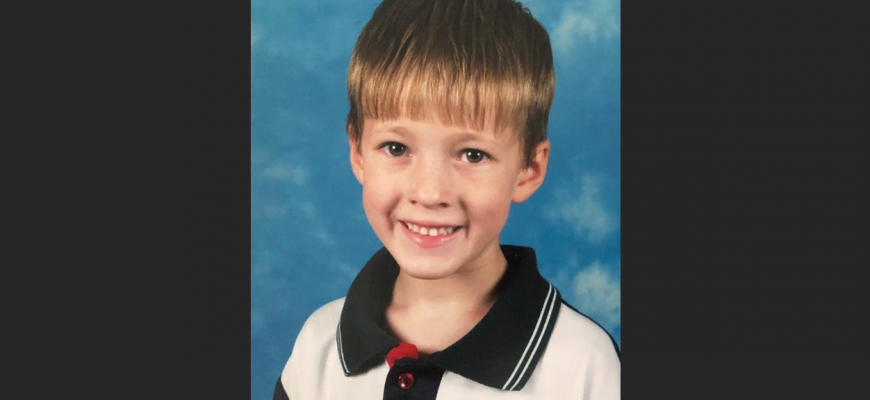My second son has just graduated from high school and finished year 12. We have just had his valedictory dinner at the Melbourne Museum. It was a magical evening.
My school journey isn’t over just yet, I still have my daughter to go and of course, the support I offer to my three children won’t stop any time soon either.
School – The early years
I remember when my second son started school. He was the cutest little poppet you have ever seen.
He’s a bright spark let me tell you, even back in prep at 5 years of age, I remember him telling me how he wasn’t very impressed when he had to sit and wait while his teacher chased kids around the room to put their shoes on and tie their shoelaces. He told me how boring it was having to sit on the mat, having already tied his own shoelaces to wait for half an hour.
My second son has always been super independent, catching buses to trash and treasure markets and skate parks as a young person. He is really active, likes to fish and loves; free diving, spear fishing, camping and being outdoors. You can imagine then, that school was not his favourite place. He found sitting still in class and having to listen to teachers excruciating.
He needed to move to learn. When he was forced to sit still his mind would simply switch off. His auditory memory is amazing (when he is tuned in) and his verbal expression is incredible. When he was first tested for dyslexia at the age of 10, during his WISC assessment his verbal expression level was determined to be that of a 16 year old.
I think for most of his school life he was not interested in the school subject matter unless it was sport, a design or creative subject, cooking or outdoor education.
Problems reading
In Grade 3 he came to me and said,
I was surprised, I didn’t think there was anything wrong with his sight except a sensitivity to bright sunlight.
We went and saw an optometrist, but his eye test showed perfect 20:20 vision. Despite this, he continued to complain and then one day after school he threw his bag at my feet in frustration and tears and ran for home. I found him in his room crying because at school that day he had only been able to write one sentence when the class was writing about dragons. He complained he couldn’t see the page.
Something wasn’t right!
At this time, he was a great storyteller, keeping audiences around the campfire completely enthralled with his incredible stories so, why couldn’t he get those amazing stories onto the page?
Off we went to another optometrist for yet another eye test which again showed perfect 20:20 vision and again we were both left completely confused.
It was then I began to investigate visual processing deficits as a possible cause and Bingo!
It seemed, he had one eye that was working really well and one eye that was much weaker. This meant he didn’t have vergence because the stronger eye was dominating, causing text distortions on the page.
It took until about grade 5 before we were finally able to figure out what was happening. When he focused really hard he could get a single word to stay in focus on his page, but the rest of the words would shudder. Every time he moved on to the next word, he would again have to focus really hard to get that word to stay in focus while the rest of the words shuddered.
He was actually reading word for word to word. No wonder he was suffering from debilitating headaches.
This also explained to me why he was skipping the little words like; of, in, is, as, on, or and to. He would sometimes change these words; ‘in’ would become ‘on’, ‘on’ would become ‘of’, ‘off ‘would become ‘of’. It would completely change the meaning of the stories.
His fluency rate was really low, and his reading ability was well below his age level too.
We took him off and had him tested for a visual processing deficit. We did this in a few of ways. We visited a visual processing specialist and we also went to an Irlen clinic.
Other things to try include eye exercises and patching of the stronger eye allowing the weaker to become stronger.
He tended to go for the really dark colours and ended up with deep red glasses.
For the first time in his life, everything on the page stayed still!
Everything calmed down for him, the headaches stopped, the stress stopped, the fluoro-light glare stopped and for first time in his life he was reading fluently. This happened in about 3 weeks.
His red glasses helped him enormously and the result was a changed child.
As I said, he has just finished year 12 and he wore his red glasses the whole way through. He always had them with him, because he needed them.
It has been a pretty full on journey to get to this point. I’m not sure where we would be today without his red glasses. They made a massive difference and allowed him to catch up with his reading and spelling really quickly and as a result, he did incredibly well.
He didn’t love academic learning, but he loved his friends, loved all the different experiences and had a really great school experience.
Graduation
Last night, my second graduated from high school, with all his friends and we celebrated with his friends’ parents who have also become our good friends.
Today I pay tribute to my son. He has done exceptionally well, and I could not be prouder of him.
Over the years I have used lots of strategies with my son, including all of those I teach in the Speech to Spelling Code™. If you have a child who needs support and you would like more information on the Speech to Spelling Code™, Click Here.




















I love you work Liz- I too am a teacher and have 3 dyslexic children- they are getting there but it’s been heartbreaking to watch them struggle, even though they were trying their guts out, both at school and at home. It was comforting to read your story.
The silver lining – my own teaching, empathy and understanding of reading difficulties has vastly changed. Thanks again.